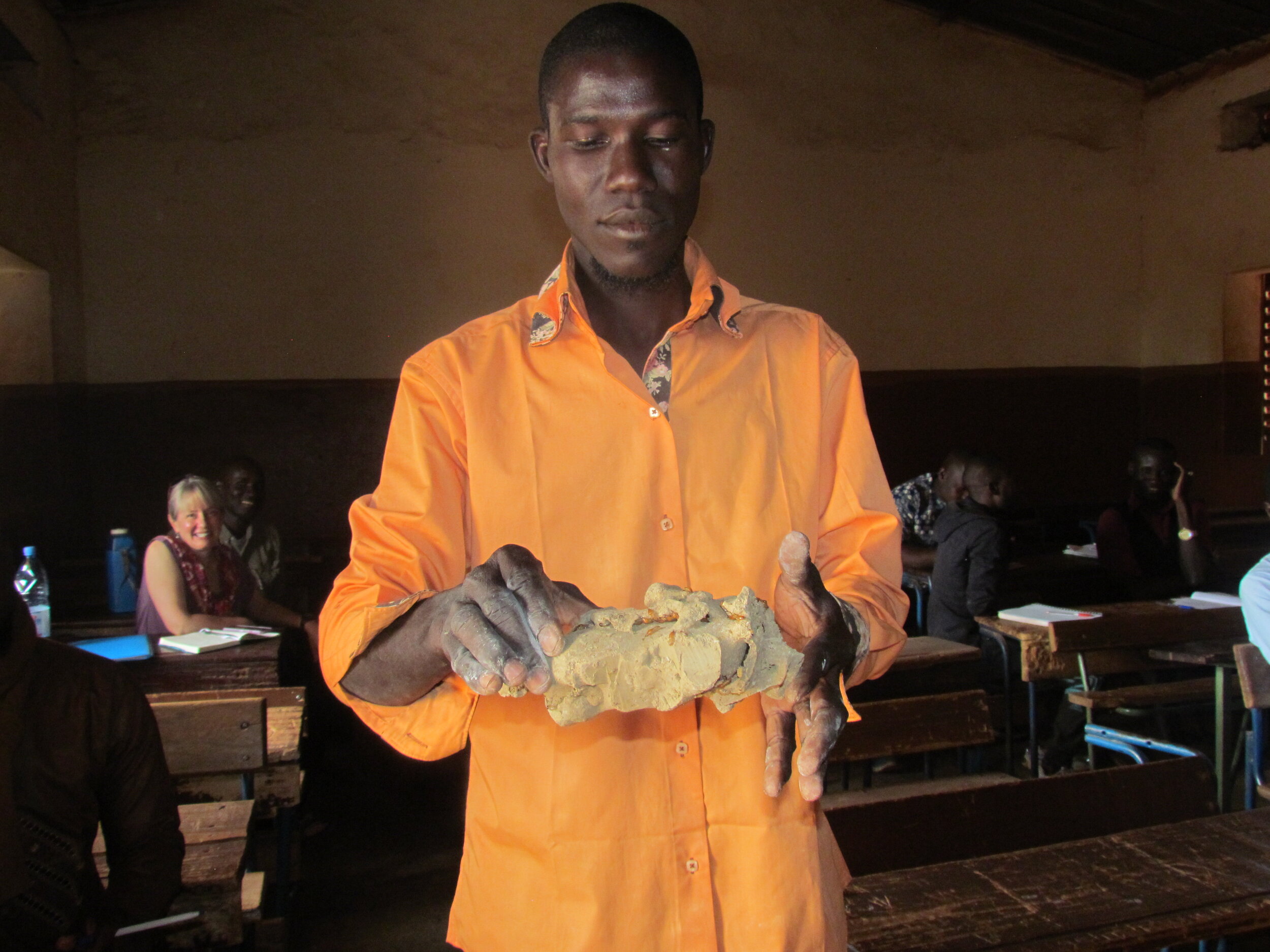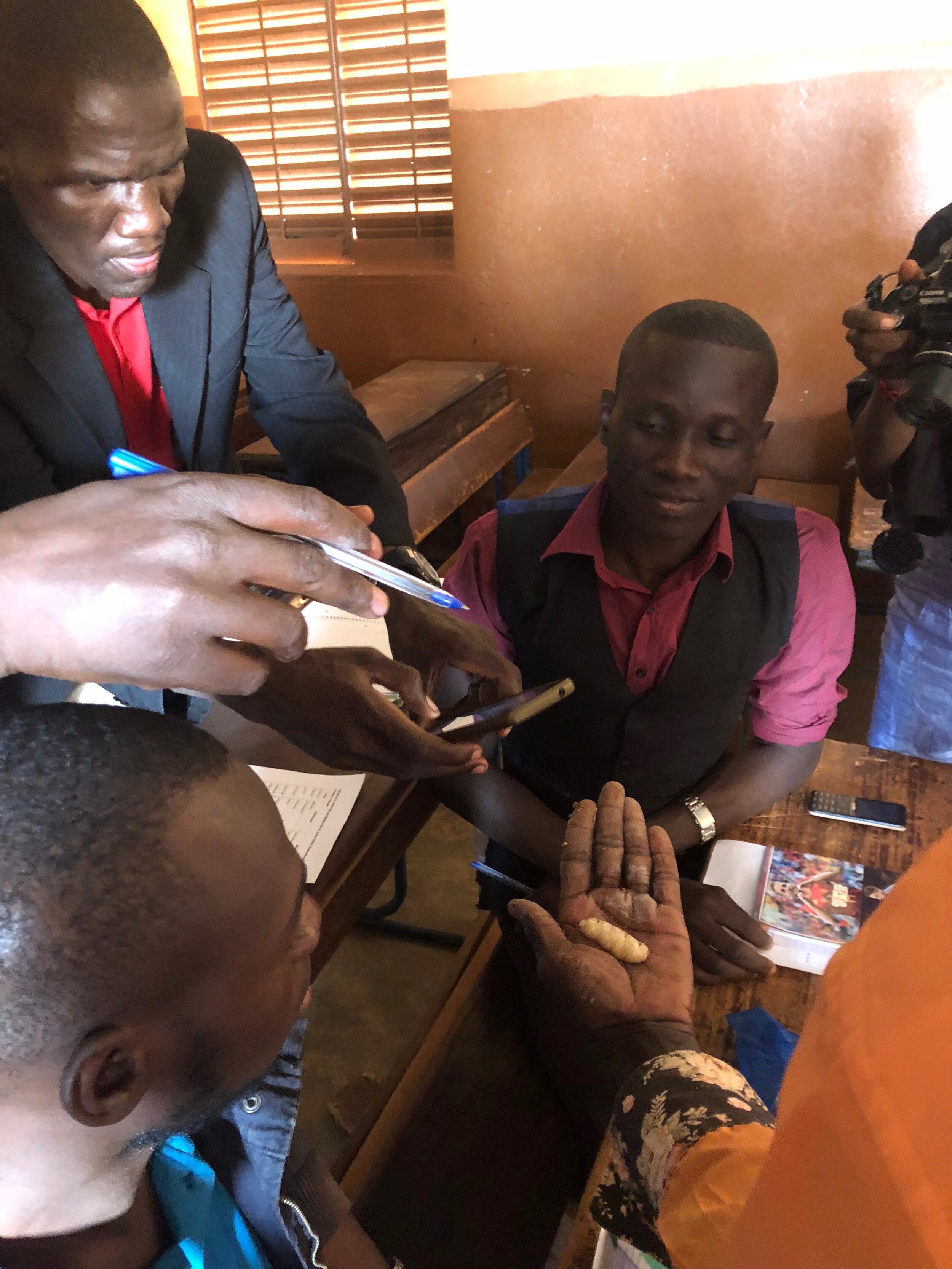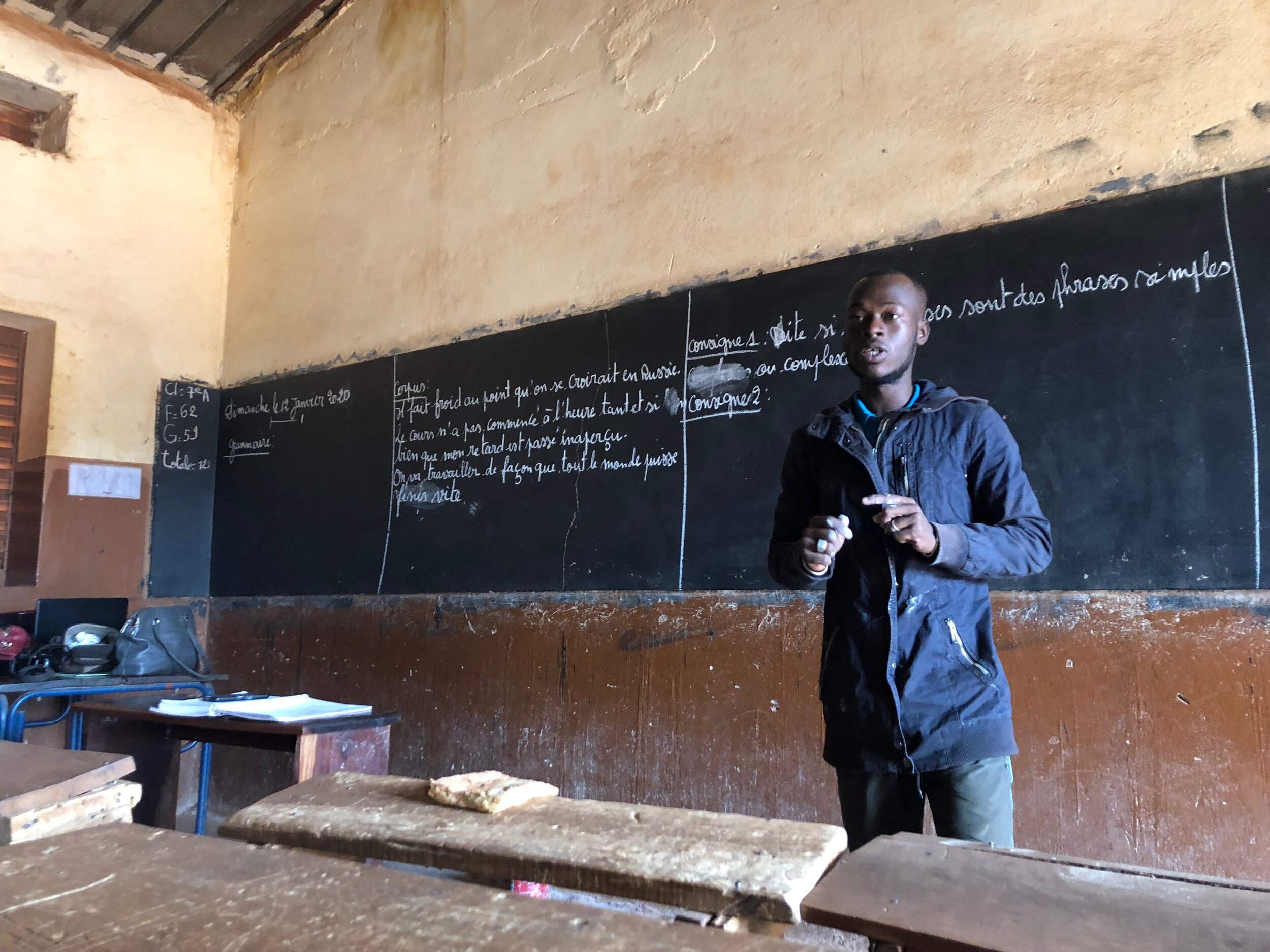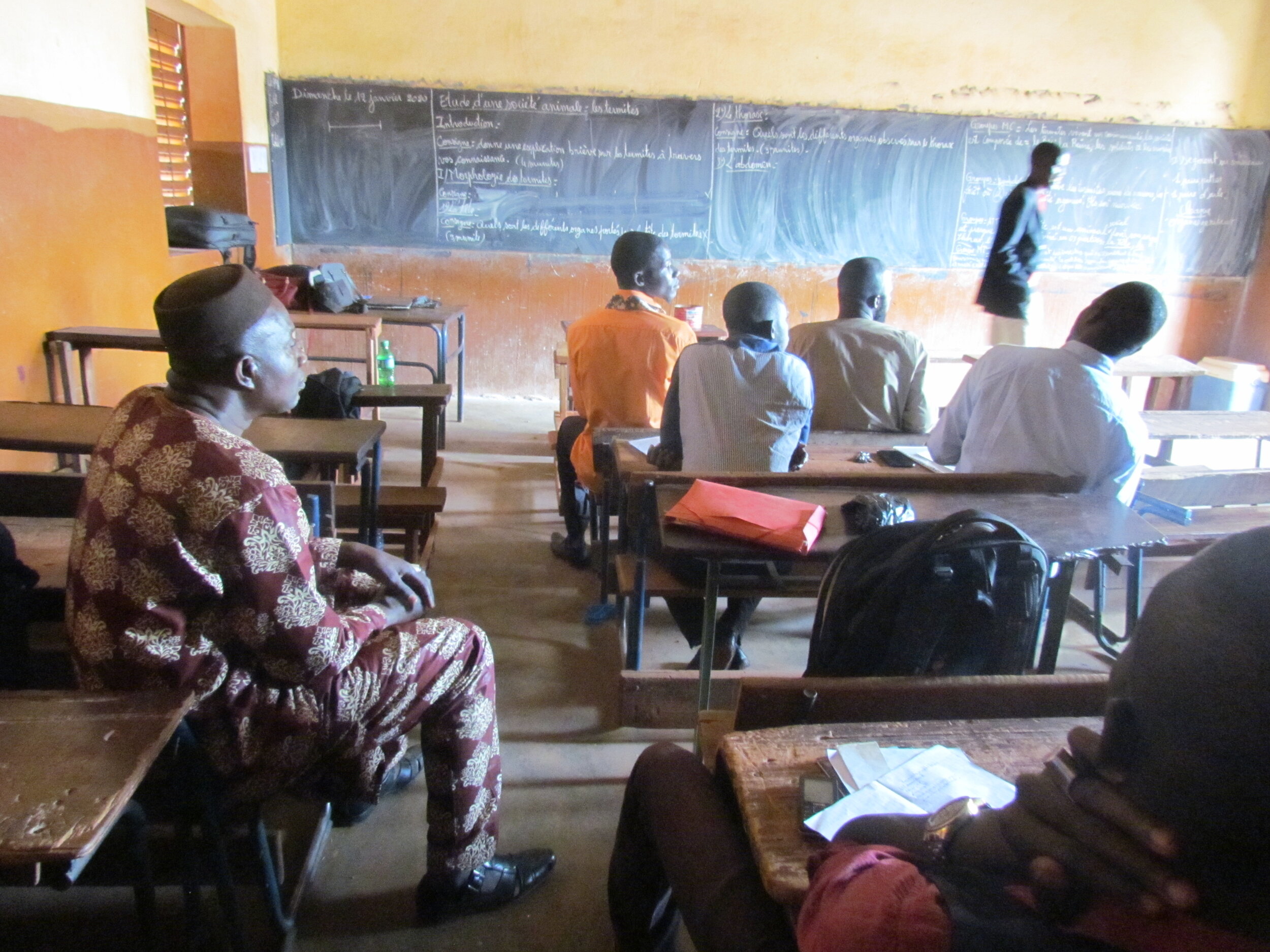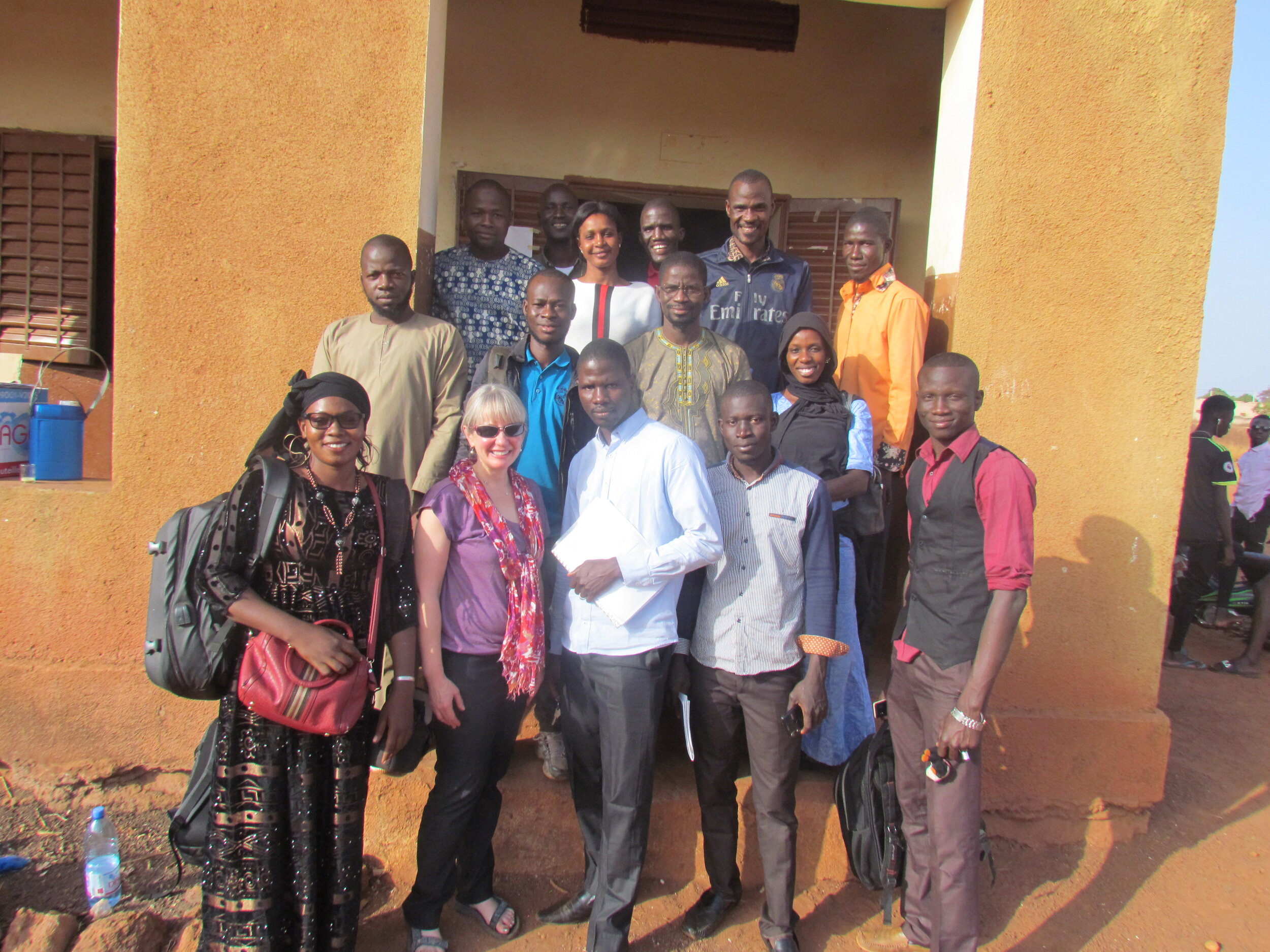Teachers face many challenges while doing their teaching job. These include a lack of teaching materials, textbooks, trainings and peer meetings. To help teachers in our partner schools improve their work and help students succeed in school Mali Rising Foundation provides teacher training, peer meetings, materials, and more. Of all the support we offer, one teacher told us peer meetings are his favorite. Why?
How Two Moms Use the Mothers' Loan Fund
By Hindaty Traore, Girls’ Project Manager
This month, I checked in with a group of mothers who are using their entrepreneurial skills to make sure their daughters can attend middle school and build better lives for themselves.
The Cliff and Nita Bailey School in the little village of Beneko is one of the first schools where Mali Rising’s Girls’ Project was piloted. As part of the Project, the mothers of the village received a seed grant to set up what we call a Mothers’ Loan Fund. This Fund loans money to mothers for small businesses. The interest on those loans is pooled to fund school fees for the village girls in perpetuity.
Each village’s Mothers’ Loan Fund is run by the women of the village, and so sets up its own rules and systems. Given the large number of women in Beneko, the loans are distributed every 6 months. Each woman who receives a loan receives 5,000 FCFA. After six months each woman must bring 5000 FCFA plus interest -- which is 1000 FCFA.
Each woman uses her money differently to have her own benefit and interest after every six months. I wanted to share the stories of two women – Bintou Samake and Deniba Bagayoko.
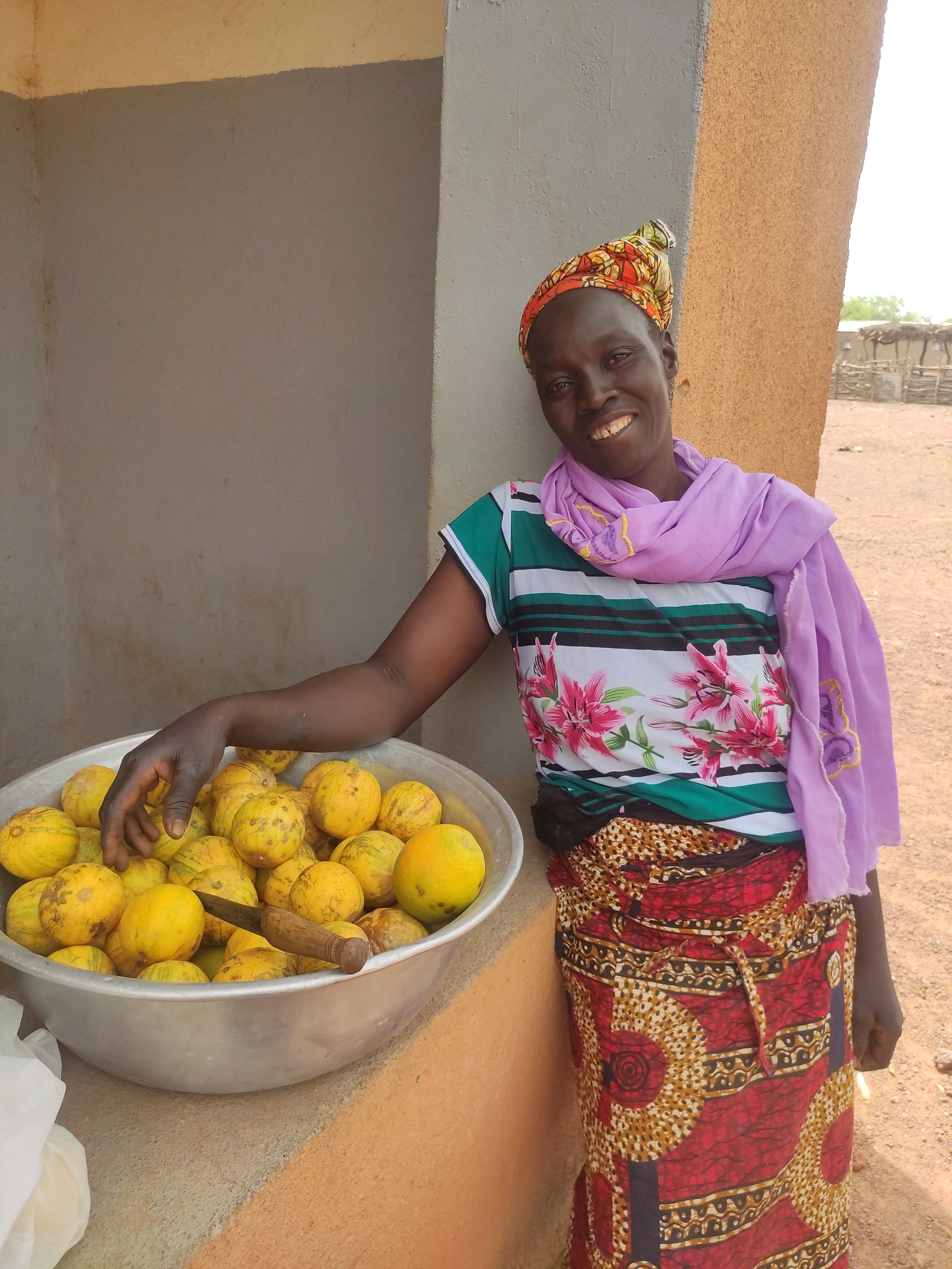
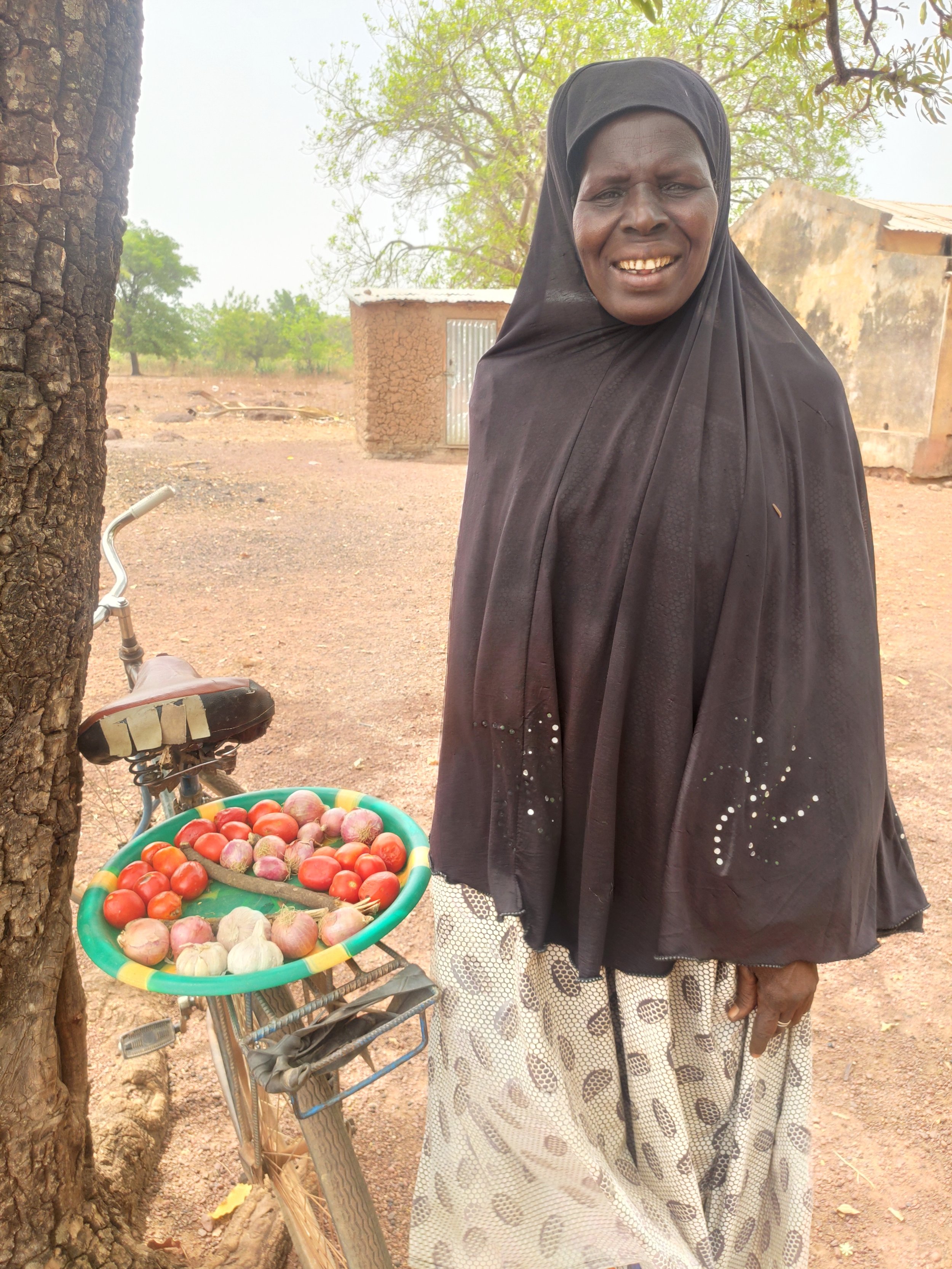
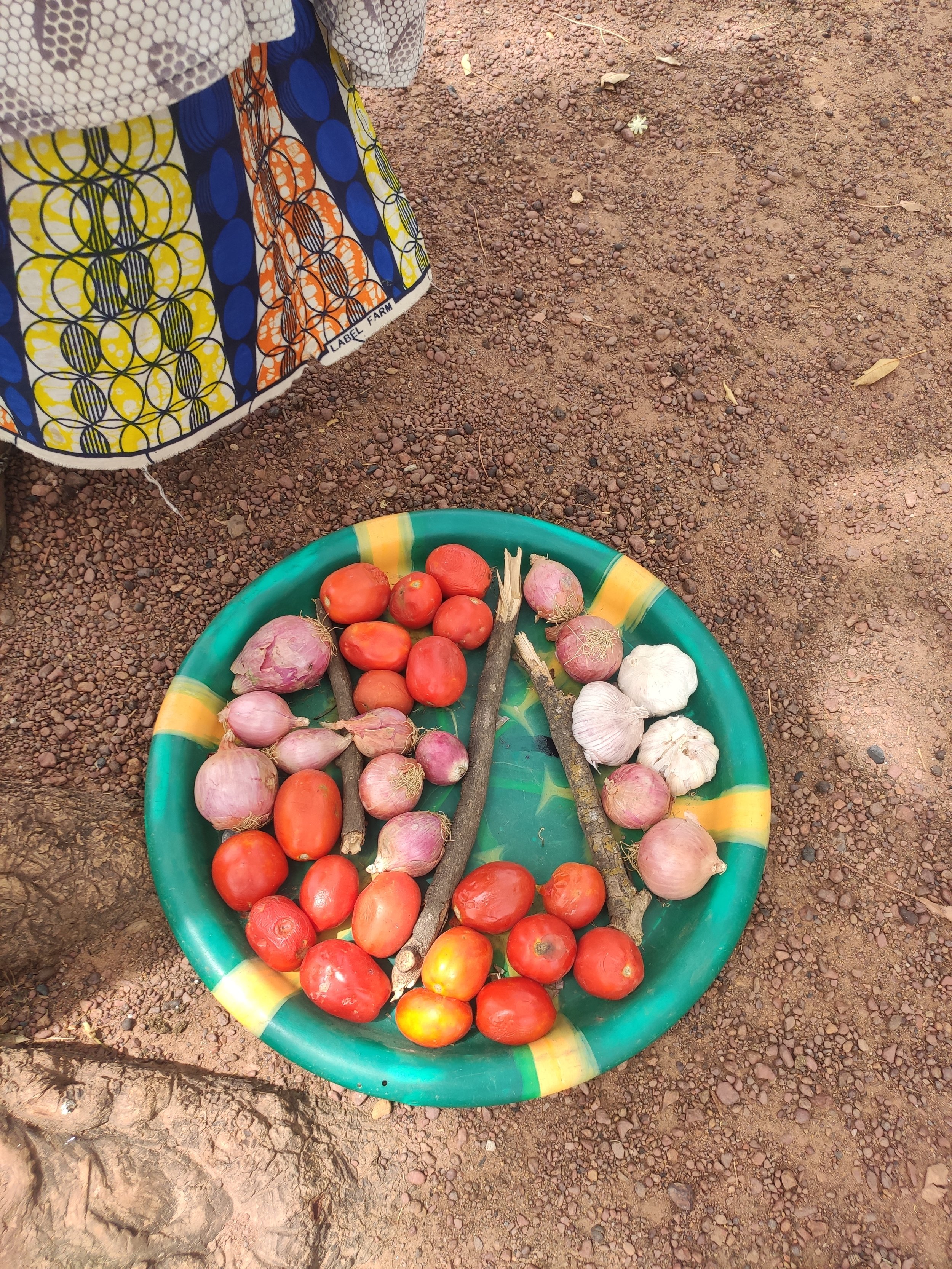
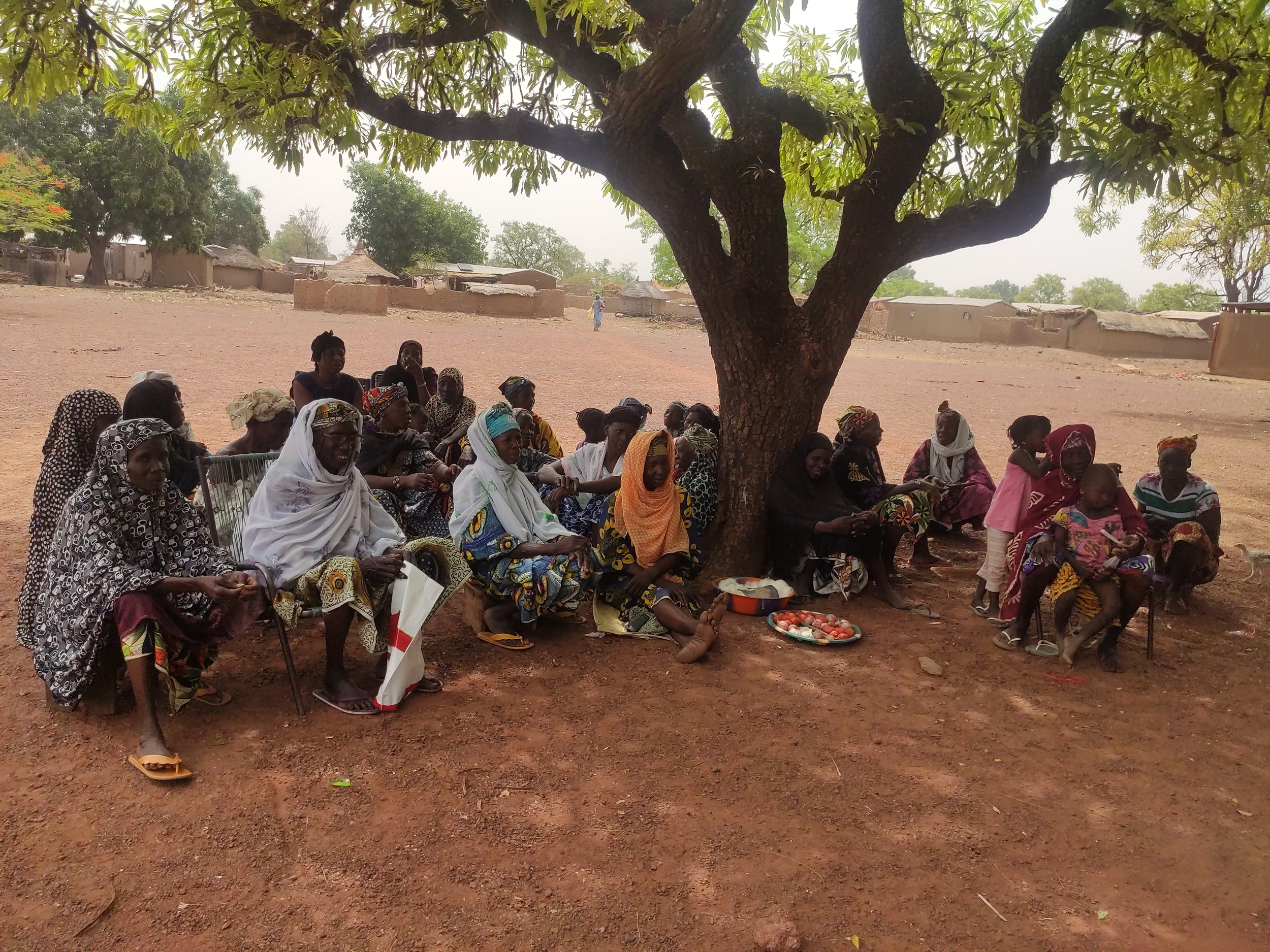
Bintou Samake’s loan
Bintou Samaké is the mother of 7 children, 5 of whom are currently in the middle school of Beneko. She was one of the beneficiaries of the first distribution from Beneko's Mothers’ Loan Fund.
When she received her loan, Bintou went by bike to get oranges from Famana, a village 10km from Beneko, to come back and sell them in Beneko. After selling her oranges she obtained 2500 FCFA as a profit. In six months, she was able to have a personal benefit of 30,000 FCFA. After six months, she returned the 5000 FCFA plus the interest of 1000 FCFA in the fund. “I sell oranges because a lot of people don't sell those here. That's why the profit is a bit high compared to other businesses in the village,” says Bintou.
Before the arrival of the project, Bintou found it difficult to pay the school fees of her five children. She saw her children expelled from school because of non-payment of school fees. She and her husband are farmers so they do not have enough resources. When the Girls’ Project Mothers’ Loan Fund came, the project paid for all the girls' school fees, which reduced her expenses. Bintou likes her side business, but she continues to farm and be a housewife.
Deniba Bagayoko’s loan
Deniba buys condiments such as tomatoes, onions, garlic, and concentrated tomatoes to sell in the village. The profit is not huge but it allows her to repay the money and interest from the Fund and still to have some extra money to set aside aside.
She also often buys cereals such as millet and maize when it is cheaper and keeps them until the price of these cereals is high, then she sells them. “The money that Mali Rising gave us helped me a lot, especially to pay the school fees for the girls because it is the women who pay the school fees for the girls but the women do not have the means to pay that. My daughter is married and her husband's parents do not want to pay her school fees. But thanks to the interest of the fund, she continues her studies,” exlplains Deniba.
Deniba Bagayoko’s last daughter in grade 9. Her daughter loves school but has failed the DEF graduation exam twice. Her daughter is married in another village 3 km from Beneko, and she has a 1-year-old child. Deniba says tat housework and the maintenance of the child prevent her from studying well.
However, Deniba takes care of her daughter’s child so that she can go to school. The daughter’s husband wants her to study but she is in the big family the household chores are enormous, so it is not at all easy. According to Deniba if there was no interest in the fund to pay her daughter's school fees, her studies would be finished because her in-laws refuse to pay. But because she utilized the Mothers’ Loan Fund through Mali Rising, they have not had difficulty paying school fees for the girls.
The women of Benkeo welcome the Mothers’ Loan Fund because it allows them to keep their daughters in school without fear of expulsion. We love to see the Funds succeed because there are just so many benefits – more girls in school, mothers that feel empowered to protect their daughters, and even a little “extra” money for the family home.
Mali Rising Alum, Zantigui, Imagines Giving Back
By Ousmane Coulibaly, Operations Coordinator
Mali Rising’s graduates leave 9th grade and scatter around the region. Although some stay in their home village, many move to a bigger town for high school or a vocation school or head to the city to find work. I recently tracked down one of our graduates who is living in Ouelessebougou, a big town that is home to a high school where he is continuing his education.
“My name is Zantigui Bagayoko. I am a former student of Mali Rising Foundation. I got my DEF [certification that he passed the national graduation exam] in 2015 from the middle school Cliff and Nita Bailey of Beneko,” he told me.
I asked Zantigui what he is doing currently and he responded, “Currently, I am pursuing my studies at the Lycée Public of Ouelessebougou and I am in the 12 grade and I focus on Social Sciences.”
We also discussed Zantigui’s plans for his future. He shared his big vision for his life, “I have a lot of aspirations and dreams in life. I would like to study and become a customs officer. I really like this job. I would like to success in life, because I would like to contribute to the development of my community. When I will get means, I would like to bring clean drinking water to our village, and build paved roads, schools, and health centers. I would also like to increase the number of teachers, because there is a lack of teachers in our school in the village.”
Zantigui’s vision for his future is clear and after talking with him I believe he will achieve his goals. I love how he plans to give back to his village as well — this is why education is so important to Mali’s future!
Mr. Mallé Wins Most Helpful Teacher
Mali Rising teachers work hard to help students and change lives. In Mali’s rural schools, teachers face many challenges such as the lack of electricity, limited teaching tools, poor housing and classrooms, a large number of students in one classroom (often 100 and up!), and more. In spite of all these challenges, many teachers just enjoy helping kids and have great relationships with parents and village leaders. Mali Rising has established annual awards to recognize this dedication and hard work. This year we honored Mr. Mallé Brehima with the Most Helpful Teacher Award.
Lunchtime in a Mali School
Mali is a country that prioritizes education, despite the many challenges we face with poverty, unrest, and of course the pandemic. One of the biggest challenges for the authorities (and for Mali Rising!) is keeping kids in school until they graduate from middle school. With multiple gold mining areas calling to kids with get-rich-quick dreams, the rural exodus of kids to work and get money, and the long distances walking or biking to get to school every day, many children drop out before they graduate. With the aim of helping stop drop outs, the Mali government has been thinking about many strategies like school lunch program, parent’s involvement, etc. In previous years, many of those strategies did not work very well. However, two years ago, we started noticing a strategy that seemed promising. The government was creating school lunch programs in some rural schools.
Good Principals Make Good Schools
Mr. Konaté is one of our principals who impresses us with their great school results and strong relationships with their partners like school committee, local educational department, and non-governmental organizations. At a recent Principal Peer Meeting, we had a chance to talk with him about his school and how he runs it so well.
Travelogue...Days 1 & 2: Teachers & Termite Bites
The US- and Mali-based staff spent two weeks in January together in the field in Mali. Our incredibly limited access to the internet did not allow us to post our blog updates from the field, so we are sharing them now from the zippy wi-fi of the U.S. Join us on the blog for the next few weeks for a daily update on the trip!
By Merritt Frey, Executive Director
Day 1-2, January 11-12: The first full day of our expedition was a memorable one, including a lively peer meeting with 10 of our teachers and a termite bit for me.
I arrived in Bamako early on Saturday evening, having met up with Mali Rising supporter and volunteer extraordinaire Tim Gibson at the Paris airport. The Mali staff welcomed us at the airport in sunny Bamako, but then left us to recover under our hotel’s beautiful, big trees. After more than 24 hours of travel, we were happy to head to our rooms, only to find our rooms basically abutted the all-night dance party next door – hurrah for ear plugs!
Sunday morning all that was forgotten as we headed out – me to Mali Rising’s teacher peer meeting several hours’ drive away and Tim to the wedding of a friend’s daughter in Bamako. I was excited to finally see a teacher peer meeting in action. We launched the peer support idea two years ago, with the help of our generous teacher sponsors. The idea was to find ways all year long for our teachers to help each other implement what they learn at our annual training.
At each peer meeting 8 to 10 teachers from 4 or 5 Mali Rising schools gather together. Two teachers agree to present a lesson to their peers as if their fellow teachers were the students. After presenting, the teachers gather feedback – good and bad – from their peers. It takes a strong teacher to volunteer to present for criticism!
At this meeting, we hosted 10 teachers – 5 French teachers and 5 science teachers. They came from our schools in Kafara, Fadioubougou, Beneko, Tamala, and Sequessona. Both of our volunteer presenters were from Fadioubougou’s EO Learn for Life Academy.
It was so heartening to watch our teachers in action. Despite their limited tools and support (many teachers are facing classes of 100 students with few textbooks and other materials), they were professional and passionate.
The French teacher, Amadou Traore presented first. As someone who was never great with grammar, I can say with certainty that Mr. Traore did an amazing job of making complex sentences and participles understandable! He had us working in groups, diagramming sentences, and making up our own sentences to prove we understood the concepts. Feedback from his peers was supportive, but also quite critical. He took the tough feedback with great grace.
I have to admit though that for me the science teacher – Souleymane Kone – stole the day. His lesson was about social insect communities, and specifically termites. He got our attention immediately because he brought part of a termite nest with him! Mr. Kone had us exploring their anatomy, experimenting to see if they bite (well, yes, if you poke them), and more. Although Mr. Kone received some tough feedback about the organization of his lesson, everyone agreed that his passion for the subject was infectious and that students would be hooked to the lesson.
The meeting ended with time for the teachers to share other issues or challenges they face and to discuss possible solutions. Although there are many challenges at rural schools in Mali, the teachers made it clear they would love more chances to learn together at peer meetings and additional teacher training. We also added the teachers to a WhatsApp group we are using to keep the teachers in contact with each other over the school year. Thank you to all the Mali Rising supporters who made this peer gathering possible!
Learn more about our Teacher Project.
A New Girl Leader Steps Up to Help Other Girls
Making the Girls Project Sustainable...Meet our Girl Leaders!
We love our Girls Project, which strives to recruit more girls into school and retain them there so they have the skills to build the lives they dream off. The Project has been very successful in its initial three pilot villages. We worked in those villages in pilot mode for three years, but are now working with those villages to have them take on the Project in a sustainable way (this will allow us take the Project to five new villages!). As part of that sustainability strategy, we are developing Girl Leaders for each of the pilot villages. These young women are now high school students, but they will be working in the villages to run the Girls Groups and other Project elements. We think they will also serve as great role models for sticking with school.
Girls Leading the Way!
We are trying something new, and it is so exciting we wanted to share! Our Girls Project Coordinator, Hindaty, wanted to help our Girls Project girls build their leadership skills. Hindaty found a powerful female trainer and together they designed a wonderful training for the girls. We just tested the training in the first partner village, and it was inspiring! Check out the photos…



